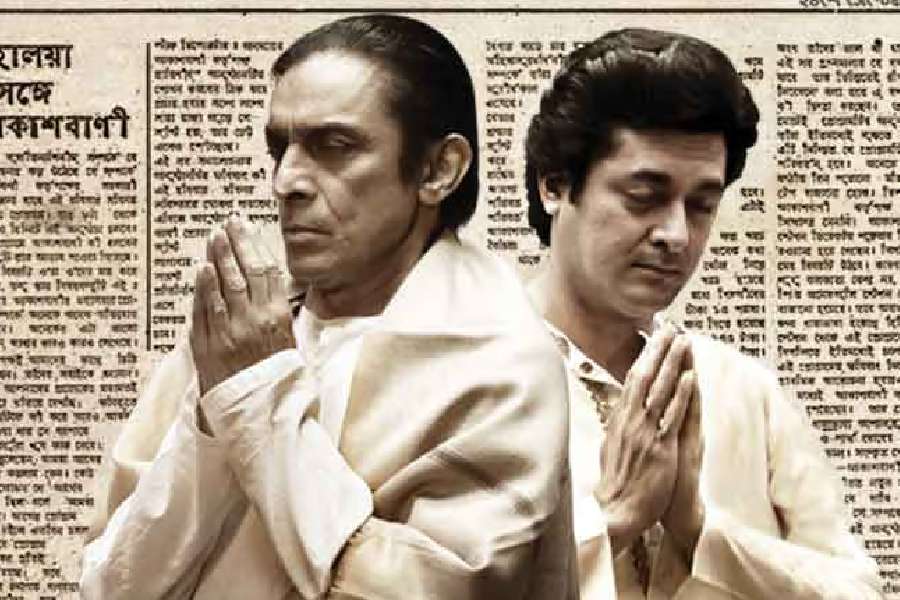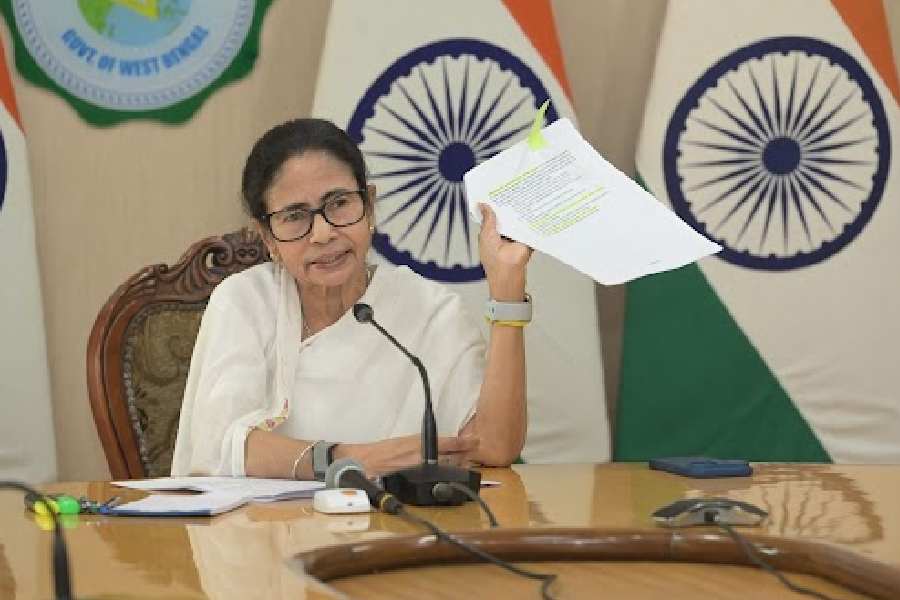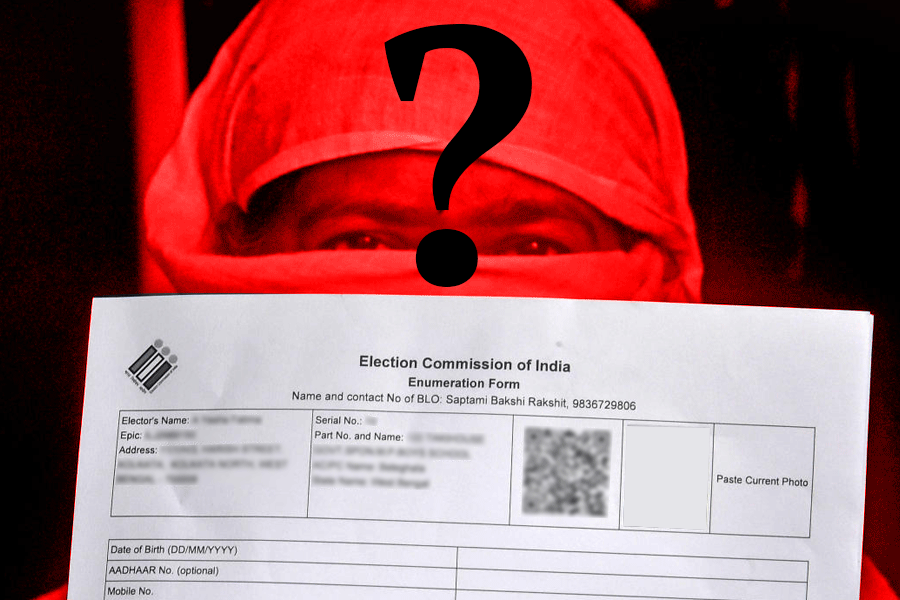For generations of Bengalis, the dawn of Mahalaya is synonymous with waking at 4am to the legendary voice of Birendra Krishna Bhadra leading the radio broadcast Mahishasurmardini, heralding Durga Puja. Accompanied by Pankaj Mullick’s iconic music, the programme is transformed into a cultural ritual.
Soumik Sen’s 2019 film Mahalaya, streaming on ZEE5, revisits the stormy year of 1976, when this tradition was abruptly broken. The Emergency was in full swing, and bureaucrats eager to inject “freshness” into All India Radio’s programming decided to replace Bhadra’s voice with the most beloved star of Bengali cinema, Uttam Kumar. Pankaj Mullick too was shunted, with Hemanta Mukherjee replacing his ‘guru’.
The broadcast was rebranded Debi Durgati Harini. The result was a debacle so spectacular that AIR had to return to Bhadra and Mullick the very next year.
Sen’s film features Subhashish Mukherjee as Birendra Krishna Bhadra — a stoic, dhuti-clad middle-class man who never treated the radio programme as a professional duty but poured his soul into the broadcast. Opposite him is Jisshu Sengupta, tasked with portraying Uttam Kumar — an almost impossible challenge, given the Mahanayak’s enduring aura. Sengupta does well to show the matinee idol’s unease at stepping into another man’s sacred space.
The supporting cast is equally strong. Shubhomoy Chatterjee shines as the uncompromising Pankaj Mullick, while Prosenjit himself slips into a villainous cameo as a scheming bureaucrat driving the change.
Sen stages his drama with a careful mix of history and fiction. There are moments of sharp confrontations — Mullick bristling at those who question Bhadra’s right to recite Chandipath because of his caste, or a repentant protégé returning to his ailing mentor in the climax.
But Mahalaya glosses over the singers and musicians who rehearsed for months to stage Mahishasuramardini. The film’s soundtrack, curiously, underplays the programme’s own haunting compositions. Hemanta Mukherjee is given a negative edge, a choice some may find debatable.
Where the film scores is in capturing the socio-cultural stakes of that year. The makers depict how the programming change was a clash between state power and artistic freedom. Bengal, as the film shows, refused to let its tradition be tinkered with, a lesson that AIR learnt the hard way.
Four decades on, Bhadra’s voice still wakes Bengal every Mahalaya dawn. And when Uttam Kumar passed away in 1980, it was Bhadra who recited the mantras at his funeral — a gesture that summed up the mutual respect between two legends forced into an avoidable conflict.










